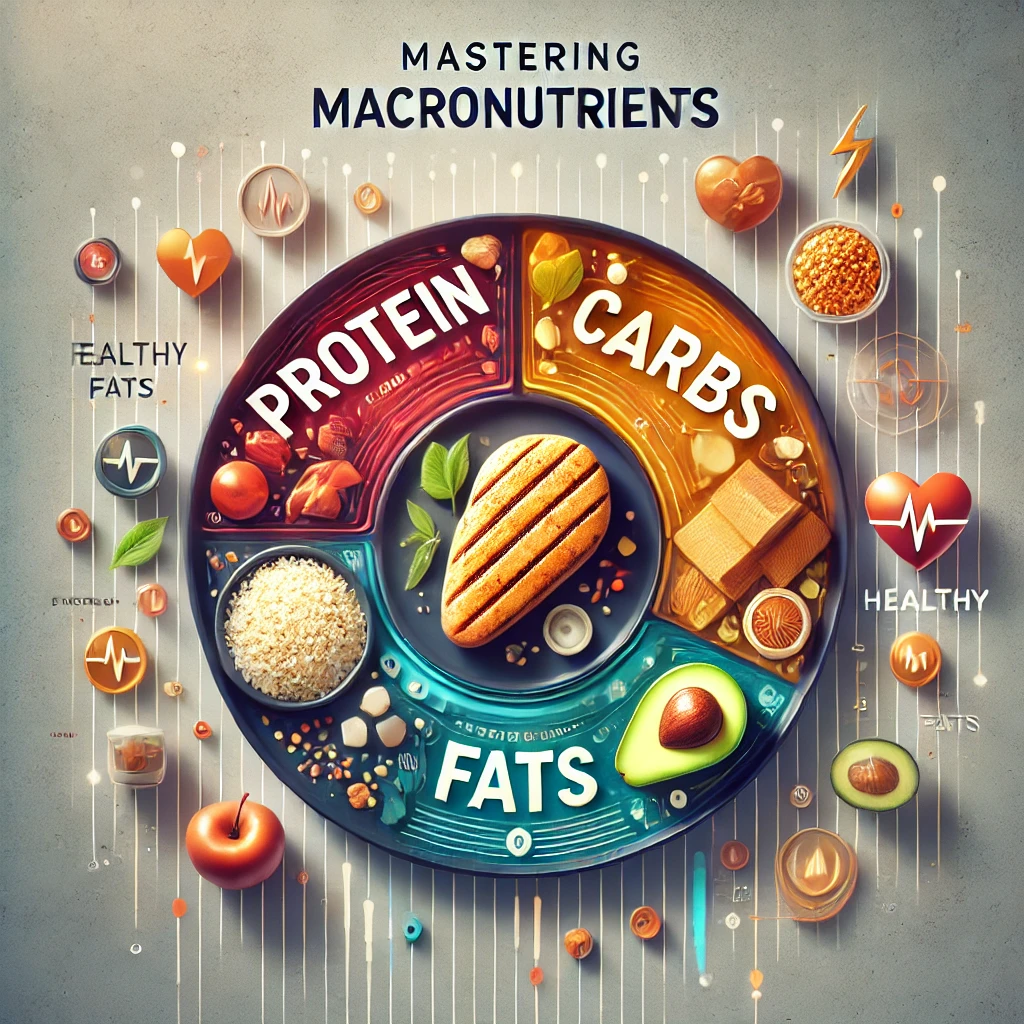Protein powder has long been a staple for fitness enthusiasts, athletes, and anyone looking to boost their protein intake. But beyond just adding protein powder to your diet, there’s another critical element to consider: timing. When you take your protein can significantly impact muscle repair, growth, and overall results. In this article, we’ll explore the science behind protein timing, how it works, and when the best times to take protein powder are for maximum benefits.
Table of Contents
What Is Protein Timing?
Definition and Explanation
Protein timing refers to the strategy of consuming protein at specific times of the day to optimize muscle growth, repair, and overall performance. It’s based on the idea that your body’s ability to utilize protein for muscle protein synthesis (MPS) – the process of building new muscle tissue – can vary depending on when you eat protein relative to your workouts, sleep, and other daily activities.
The concept of protein timing gained popularity in the fitness community as research suggested that consuming protein around workouts could improve muscle recovery and growth. While meeting your daily protein intake is the primary goal, when you consume it may influence how efficiently your body uses it.
Its Significance in Fitness and Muscle Building
Protein timing is particularly significant for athletes and individuals looking to build muscle mass, maintain lean muscle, or recover faster from workouts. The idea is that delivering the right amount of protein at critical times, such as before or after exercise, can help boost muscle protein synthesis, reduce muscle breakdown, and enhance recovery.
In the context of muscle building, protein is the foundation. After resistance training, your muscles need repair. By consuming protein at the right times, you ensure that your muscles have the fuel they need to repair themselves effectively, leading to muscle growth and strength gains over time.
Why Does Timing Matter for Protein Intake?

The Role of Protein in Muscle Repair and Growth
Protein is made up of amino acids, which are essential for repairing damaged muscle fibers after exercise. When you engage in physical activity, particularly strength or resistance training, your muscles endure tiny tears. These tears must be repaired for your muscles to grow stronger and bigger, and protein provides the building blocks for this process.
Without adequate protein intake, your muscles can’t fully recover, which limits growth and performance. Timing your protein intake to ensure your muscles are getting a steady supply of amino acids when they need it most can help you get better results from your workouts.
Muscle Protein Synthesis (MPS) and Its Relationship with Timing
Muscle protein synthesis (MPS) is the process where your body uses protein to repair and build muscle tissue. This process is elevated for a short time after exercise, meaning that your muscles are particularly responsive to protein intake during this period. Consuming protein around your workouts—whether it’s immediately after or even before—can increase MPS, making your muscles more likely to grow and repair efficiently.
Research shows that MPS is heightened after exercise, but it eventually returns to baseline within a few hours. This is why consuming protein within a specific time window can be crucial for maximizing MPS and promoting muscle growth.
The Best Times to Take Protein Powder

While it’s essential to hit your daily protein goals, taking protein powder at strategic times can further enhance your results. Here are four key times to consider for maximum muscle repair and growth:
Post-Workout Consumption
After a workout, your muscles are primed to absorb nutrients, particularly protein, to start the recovery process. Consuming protein powder within 30-60 minutes post-exercise, often referred to as the “anabolic window,” can give your body the resources it needs to rebuild muscle tissue and enhance recovery. Whey protein is a popular choice for this time, as it is quickly digested and absorbed by the body.
Pre-Workout Protein Intake
Taking protein before a workout ensures your muscles have a steady supply of amino acids during exercise. This can help reduce muscle breakdown during intense sessions and provide the energy needed to maintain performance throughout your workout. Some people prefer a small protein shake or meal about 30 minutes to an hour before training to ensure they’re fueled for exercise.
Protein Powder in the Morning
After a long night of fasting while you sleep, your body is in a catabolic state, meaning it’s breaking down muscle for energy. Taking protein powder in the morning helps stop muscle breakdown and gives your body the fuel it needs to start repairing muscles that were stressed the previous day. A quick morning shake, especially with fast-digesting protein like whey, can kickstart your recovery and growth.
Protein Before Bed
Your body continues to recover while you sleep, which makes nighttime a great time to consume protein. Taking a slow-digesting protein like casein before bed ensures your muscles get a steady supply of amino acids throughout the night. This can help prevent muscle breakdown and support muscle repair during sleep.
Post-Workout Protein Intake: Why It’s Crucial
The “Anabolic Window” Concept
The anabolic window is the idea that there is a limited period after exercise when your body is especially primed to absorb and utilize protein for muscle recovery and growth. While recent research suggests this window may be wider than previously thought (up to several hours), consuming protein shortly after your workout is still a smart strategy.
The key benefit of taking protein post-workout is that your muscles are depleted and need amino acids to repair themselves. By providing these nutrients during the anabolic window, you’re maximizing your body’s ability to rebuild muscle.
How Protein After Exercise Aids Muscle Recovery
After a tough workout, your muscle fibers are damaged, and your glycogen stores (your body’s stored form of carbohydrates) are depleted. Taking protein post-workout helps repair muscle damage and replenish glycogen stores. When combined with carbohydrates, post-workout protein can further enhance recovery, reducing muscle soreness and preparing your body for the next session.
Protein powder, particularly whey, is popular post-workout because of its fast absorption rate. It quickly delivers the amino acids needed for muscle repair, kickstarting recovery as soon as possible.
Pre-Workout Protein: Fueling Your Muscles for Exercise
Benefits of Pre-Workout Protein Intake
Taking protein before a workout can have a variety of benefits, particularly when it comes to preserving muscle mass and boosting workout performance. Here’s why pre-workout protein intake can make a significant difference:
- Reduces Muscle Breakdown: When you exercise, especially during strength training, your muscles undergo stress, which can lead to muscle breakdown. Consuming protein before a workout ensures that your body has a supply of amino acids ready to be used, helping reduce muscle damage and speeding up the recovery process even before the workout is over.
- Improves Performance: Protein helps stabilize blood sugar levels, which can improve energy and endurance during a workout. If you consume a small amount of protein (often combined with carbohydrates), it gives your body the fuel it needs to power through your exercises without fatigue setting in early.
- Promotes Muscle Protein Synthesis (MPS): Having protein in your system during a workout primes your body for muscle protein synthesis, the process that repairs and builds new muscle tissue. Pre-workout protein can ensure that your muscles have the building blocks they need to maximize MPS during and after the workout.
How Protein Helps During Resistance Training
During resistance training, your muscles endure small tears and stress, which is essential for muscle growth but also requires adequate recovery. Pre-workout protein helps in a few key ways:
Faster Recovery Post-Workout: By consuming protein before your workout, you’re setting the stage for faster recovery after you finish. Your body can start repairing and rebuilding muscles right away, which can reduce post-workout soreness and lead to better long-term results.
Supplies Amino Acids: Protein is made up of amino acids, which are vital for repairing muscle damage. Having these amino acids available during a workout ensures that your muscles don’t start breaking down existing tissue to get the fuel they need.
Enhances Strength and Recovery: Pre-workout protein, especially when combined with carbohydrates, can help fuel muscles, prevent fatigue, and allow you to push harder during your workout. Studies have shown that having protein available during resistance training can lead to greater muscle mass and strength gains over time.
Protein in the Morning: Starting Your Day Right
Overnight Fasting and Muscle Breakdown
When you sleep, your body goes for several hours without food, meaning your muscles are essentially in a fasted state. During this time, muscle breakdown (also known as catabolism) can occur because your body may use muscle proteins as fuel, especially if you haven’t eaten enough protein the day before. This process is natural but can be minimized by consuming protein in the morning as soon as you wake up.
Benefits of Consuming Protein Powder Early in the Day
Supports Overall Muscle Maintenance: For those aiming to build or maintain muscle mass, ensuring a steady supply of protein throughout the day is essential. Starting with protein in the morning sets you up for success, ensuring your muscles get the nutrients they need right from the beginning of the day.
Prevents Muscle Breakdown: Starting your day with protein helps to halt the muscle breakdown that occurs overnight. By providing your muscles with a fresh supply of amino acids, you shift your body from a catabolic (muscle-breaking) state to an anabolic (muscle-building) state.
Boosts Muscle Protein Synthesis: Morning protein consumption triggers muscle protein synthesis, which is key for repairing and building muscle tissue. This is particularly important for those engaged in strength training or endurance sports, as regular protein intake promotes muscle maintenance and growth.
Increases Satiety and Energy Levels: Protein is more satiating than fats or carbohydrates, meaning it can help keep you feeling full for longer. A protein-rich breakfast or morning shake not only supports your muscles but can also prevent overeating later in the day. Additionally, it provides a stable energy source to kickstart your day and fuel morning activities or workouts.
Protein Before Bed: Nighttime Muscle Repair
The Role of Casein Protein in Overnight Muscle Synthesis
Casein is a slow-digesting protein that provides your muscles with a steady release of amino acids throughout the night. Unlike whey protein, which is absorbed quickly, casein digests much more slowly, making it ideal for nighttime consumption when your body has a long period without food.
- Sustained Amino Acid Release: Consuming casein before bed ensures a gradual release of amino acids over 6-8 hours, which helps support muscle protein synthesis throughout the night. This steady supply of nutrients can enhance muscle repair and growth while you sleep.
- Improved Muscle Recovery: Since your body does a lot of its repair and rebuilding while you’re resting, consuming casein before bed gives your muscles the resources they need to recover effectively from your daily workouts or physical activities. This leads to better overall recovery and potentially reduces soreness in the morning.
- Supports Muscle Growth: Research shows that nighttime protein consumption, particularly casein, can promote muscle growth and strength gains, especially when combined with resistance training. This is because casein’s slow absorption aligns well with the body’s overnight recovery processes.
How Nighttime Protein Consumption Prevents Muscle Catabolism
During sleep, your body doesn’t receive any external source of protein, so it may start to break down muscle tissue for energy. Nighttime protein consumption, particularly a slow-digesting one like casein, helps prevent this muscle breakdown (catabolism).
Promotes Anabolic State: Casein helps keep your body in an anabolic (muscle-building) state for longer, even during sleep. This means that rather than breaking down muscle for fuel, your body continues to repair and strengthen muscles, enhancing recovery and muscle growth.
Minimizes Overnight Muscle Loss: Without enough protein in your system, your body may use muscle proteins for energy while you sleep. By consuming casein or another slow-digesting protein before bed, you reduce the risk of muscle loss and ensure that your body is in a muscle-preserving state throughout the night.
How Much Protein Should You Take?
The amount of protein you need depends on several factors, including your activity level, age, and body composition. For those looking to build muscle, consuming about 1.6 to 2.2 grams of protein per kilogram of body weight per day is typically recommended. If you’re more focused on maintaining your muscle mass or if you’re not as active, 0.8 to 1.2 grams per kilogram might be sufficient.

What Type of Protein Powder Is Best?
Not all protein powders are created equal, and the type you choose can influence how quickly it’s absorbed by your body:
- Whey Protein: This is one of the most popular types due to its fast absorption rate, making it ideal for post-workout consumption.
- Casein Protein: As a slow-digesting protein, casein is best consumed before bed to promote muscle repair throughout the night.
- Plant-Based Proteins: For those who prefer non-dairy options, proteins like pea, hemp, or soy provide a good mix of essential amino acids, though they tend to be absorbed slower than whey.
How Protein Affects Muscle Protein Synthesis (MPS)
Muscle protein synthesis is the process by which your muscles repair and grow after exercise. Protein intake, particularly rich in essential amino acids like leucine, directly triggers MPS. If your goal is muscle growth, consuming protein throughout the day can ensure a continuous supply of amino acids, which enhances MPS and leads to better muscle gains.
Protein Timing for Weight Loss
Strategic protein intake isn’t just for muscle building—it also plays a key role in fat loss. Eating protein throughout the day can help preserve muscle mass while you’re in a calorie deficit, preventing your body from using muscle as an energy source. This is crucial when trying to lose weight, as maintaining muscle mass boosts metabolism and keeps fat loss on track.
Common Myths About Protein Timing
One of the most common misconceptions is that you need to consume protein within minutes of finishing a workout, or you’ll miss the anabolic window. However, research shows that this window is much wider—up to several hours post-exercise. Another myth is that you need to eat protein every few hours to maximize muscle growth, but as long as you meet your daily protein requirements, the exact timing isn’t as critical.
Should You Consume Protein Powder on Rest Days?
Yes! Even on days when you’re not working out, your muscles are still recovering and repairing from previous training sessions. Protein is just as important on rest days as it is on workout days. Consuming protein powder on these days ensures your muscles have the nutrients they need to recover fully.
Frequently Asked Questions
How much protein should I take after a workout? Consuming 20-40 grams of protein after a workout is generally enough to maximize muscle repair and growth.
Can I take protein powder without working out? Yes, protein powder can be a convenient way to meet your daily protein needs, even on rest days.
What happens if I skip my post-workout protein? You won’t see immediate muscle loss, but you might miss out on maximizing muscle recovery and growth.
Which is better: whey or casein protein? Whey is best for quick absorption post-workout, while casein is ideal for slow digestion, especially before bed.
Is there a limit to how much protein my body can absorb at once? Your body can only effectively use about 20-40 grams of protein at a time for muscle protein synthesis; excess protein will be used for other bodily functions or stored as fat.
Conclusion
Protein timing plays an important role in maximizing the benefits of your workouts and supporting muscle growth and repair. Whether it’s right after exercise, before bed, or first thing in the morning, consuming protein at strategic times can help you reach your fitness goals faster. By understanding when to take protein powder and how much to consume, you can ensure that your muscles are getting the nutrients they need, when they need them.









